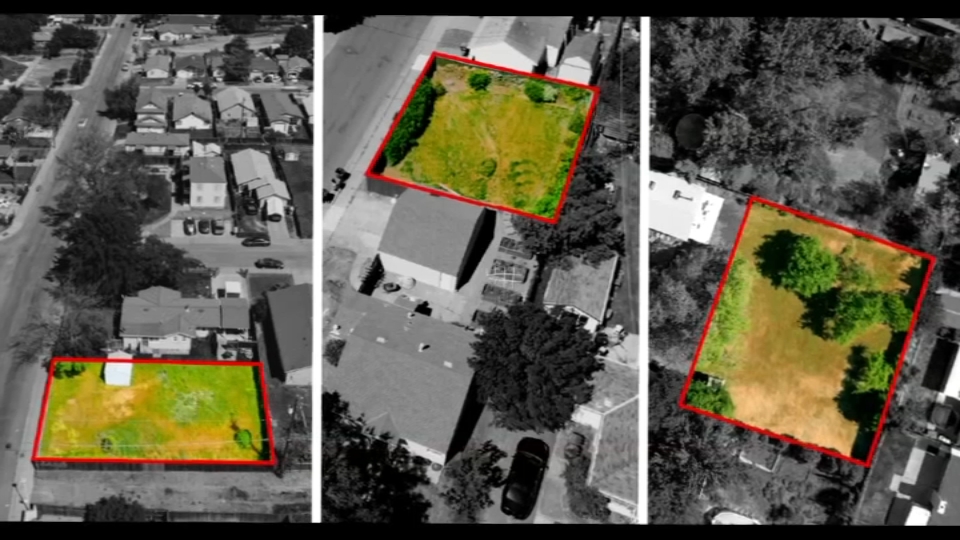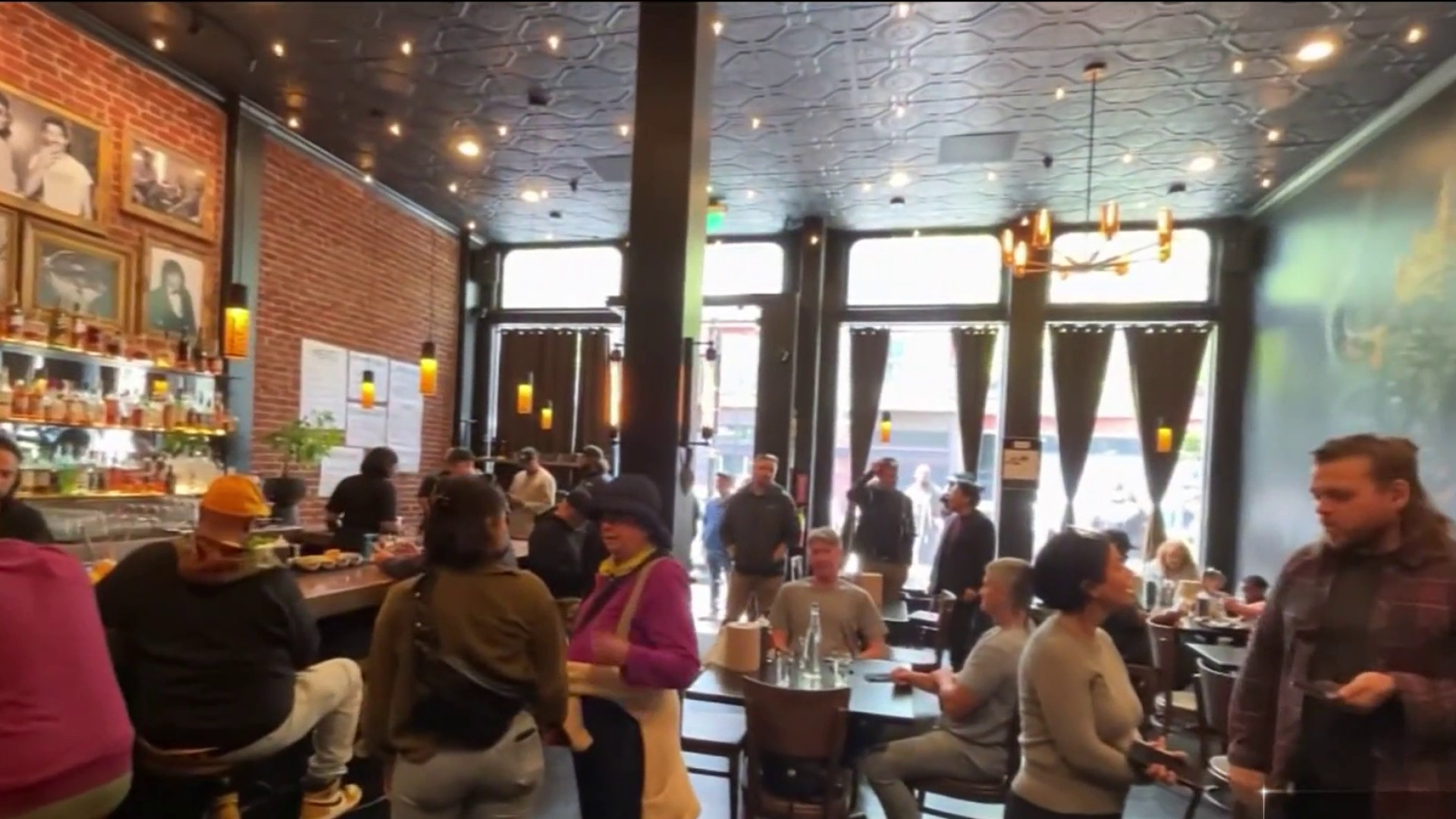Update: California’s once little-known and little-regulated fracking industry is once again coming under fire from environmentalists…
In April, NBC Bay Area's Investigative Unit first exposed the widespread and unregulated use of hydraulic fracturing, commonly known as fracking, to release oil and natural gas taking place in California.
Now, the Center for Biological Diversity officially notified both California’s Bureau of Land Management and the United States Department of the Interior of 60 day notice of intent to sue over fracking.
The Center says it wants to sue to protect endangered species from the after effects of widespread fracking in California…unless the state and the federal government take steps to more closely monitor and regulate the practice.
Original Story:
You've heard of fracking, the controversial practice of splitting rocks underground with high pressure water mixed with chemicals to release natural gas or oil. It's a technique that has raised serious concerns all over the country.
NBC Bay Area Investigative Unit reporter Stephen Stock uncovered that it's also going on right here in California and state regulators are doing nothing about it.
Local
Fracking is usually used to mine natural gas, but it's not natural gas companies here in California are after, it's oil.
While this may come to a surprise to many people, Monterey County resident Steve Craig is very familiar with it. He and his partner moved to the remote countryside more than 30 years ago. They stayed for the lifestyle and now make their living off their fifty acres of land.
"Although it looks like the middle of nowhere to someone in the city, to someone who farms or ranches out here, this is the center of the universe," said Craig.
But Craig believes his universe has come under siege by a practice taking place underground. "This is one of four known chemical hydraulic fracking well sites in the county of Monterey," said Craig.
Hydraulic fracturing has been used in small areas throughout California on and off for five decades. But according to the Environmental Working Group (EWG) the technique of fracking has become much more popular and more widespread recently.
"No one thought to look. The state was just covering their eyes and ears," said Renee Sharp, the director of the Oakland off of the Environmental Working Group.
Sharp spent the last year digging up how extensive fracking really is in California. "Cumulatively there have been hundreds and hundreds of wells being fracked," said Sharp. "Today, we can estimate there are several hundred wells being fracked here in California. We don't know exactly."
NBC Bay Area's investigative unit's Stephen Stock asked Sharp if fracking is happening on people's private land without their knowledge. She answered, "Correct. Shocking, but true."
"The state has been turning a blind eye to this even after we basically came to them and presented them with information and said listen there is fracking here, they subsequently told us, don't worry about it, and we're not planning on doing anything."
Sharp estimates that several hundred wells are being fracked just in Kern County. Sharp and her team also found widespread fracking going on in Monterey, Sacramento, Santa Barbara, Ventura, and Los Angeles Counties.
So exactly how many fracking wells are there? Sharp said that EWG doesn't know for sure, because the state of California doesn't require disclosure about its use.
Fremont Assemblyman Bob Wieckowski recently found out about fracking thanks to Sharp's work.
"A year ago I had no idea that every single oil company that is producing oil in California is fracking," said Assemblyman Wieckowski.
Wieckowski chairs the committee on Environmental Safety and Toxic Materials in Sacramento. He's now proposing a new law that would require oil and gas companies to disclose where, how, and how often they use hydraulic fracking.
Stock asked him, "How is it possible that California hasn't regulated this?"
"It certainly got my attention," said Wieckowski. "We need to have just basic information about the frequency to sort of try and get our arms around this big activity called hydraulic fracking."
Sharp and Wieckowski both say their research shows there are almost as many active fracking wells for oil in California as there are fracking for natural gas in Ohio or Pennsylvania. The only difference is those states regulate fracking.
Since there is no California law, even state regulators admit that we don't know how many wells are fracked, what water they're using, or where the waste water is going.
"We know nothing," said Wieckowski.
"Is that acceptable?" asked Stock.
"Not for me, and I think not for the majority of the legislature. Now that they've understood it, I think there is big momentum about getting something done," said Wieckowski
And on Friday, March 23rd 2012, California Governor Jerry Brown told a group of businessmen at a renewable energy conference that he was taking a closer look at the practice. "I'll be on top of it," Governor Brown said. However, he declined to comment on Wieckowski's proposed legislation.
Art McGarr is an expert in earthquake at the US Geological Survey. Since the 1960's he's studied how human mining and fracking can cause earthquakes.
"It causes earthquakes and the game that the engineers play is to make sure that these earthquakes are small," said McGarr. "There have been several instances that these earthquakes caused by hydraulic fracturing are large enough to be felt at the surface."
It's that science couple with the uncertainty of the current extent of fracking that worries Assemblyman Wieckowski.
"We are in an earthquake area, said Wieckowski. "What happens then? Not that the well will be compromised but that there will be some release of chemicals."
That lack of knowledge also worries Monterey rancher Steve Craig. "It leaves a huge question, what does stockpiled material, what do (becomes of) semi-abandoned wells that have been fractured four or five or six times, what does it mean, and what will it take to get an oil company in this region to disclose what their intents are."
California's Department of Oil, Gas and Geothermal Resources, otherwise known as DOGGR asked for and received $3.2 million dollars in funding from the legislature in 2010 to hire more workers.
With that money they hired eight associate engineers, two senior engineers, four energy and mineral resources engineers, one environmental scientist, one staff services manager, and one staff attorney to work on Underground Injection Control programs.
However, a spokesperson for the Department of Conservation says UIC does not mean fracking, meaning DOGGR never set up regulations, never began gathering data and never set up any monitoring of fracking which remains unregulated by the state of California.
In an e-mailed statement to NBC Bay Area's Investigative Unit, a spokesperson for the Department of Conservation admitted it "does not currently have hydraulic fracturing-specific regulations."
DOGGR's spokesman also says the department does not have an exact or precise number of how many wells are currently using or have currently used hydraulic fracturing although DOGGR does not believe fracking is as widespread in California as it is in the Eastern United States.
The DOGGR spokesman does admit that the oil and gas industry here in California has shown recent interest in increasing the use of fracking here in the state using new technology.
The NBC Bay Area Investigative Unit reached out to Venoco Inc, a company based out of Colorado that has fracked in Monterey County for an on-camera interview. They declined our request, and asked us to contact the Western States Petroleum Association, which we did. They told us they have no knowledge of what drilling Venoco has done in Monterey County.
In other publications, the oil and gas industry has defended the use of fracking. T. Boone Pickens, chairman and founder of BP Capital LLC in Dallas told Bloomberg Businessweek that fracking is safe. "There's nothing wrong with it," Pickens told Bloomberg Businessweek.
Two other environmental groups, The Center for Biological Diversity, and The Sierra Club have now filed a lawsuit against the Bureau of Land Management and Interior Secretary Ken Salazar.
MORE:
Read Response To Federal Lawsuit
Read Environmental Working Group Report
Read Proposed California Law AB591
Read DOGGR's Response to NBC Bay Area Investigative Unit
Do you have a story we should investigate? Contact: TheUnit@NBCBayArea.com



